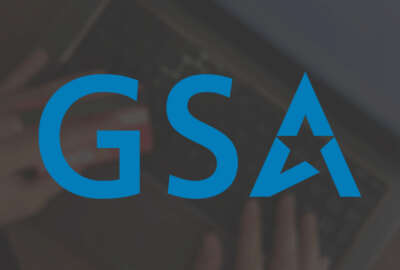Small businesses now have a chance to officially weigh in on the changes the General Services Administration wants to make to the Polaris solicitation.
GSA released draft updated language today, just seven weeks after it decided to rethink the mentor-protégé and joint venture requirements for the 10-year small business technology services governmentwide acquisition contract, which has a $50 billion ceiling.
“Following review of the feedback received in response to this request, the Polaris GWAC RFPs will be amended to incorporate final language regarding this subject along with any other changes needed. Responses to questions previously submitted will also be provided with this forthcoming amendment,” GSA stated in the notice of SAM.gov. “The Polaris RFPs remain paused until further notice. The opening of the Polaris Submission Portal also remains on hold. The forthcoming amendment is anticipated to be released in June 2022 and will establish a new closing date which will take into account the total number of days paused. Offerors are still encouraged to pause proposal activities until the amendment is issued.”
Vendors have until May 23 to provide comments.
Two suggested Polaris changes
In the draft language, GSA, which worked with the Small Business Administration (SBA) on the changes, now is asking protégé’s to provide “a minimum of one primary relevant experience project or emerging technology relevant experience project,” and the mentor can provide no more than three primary relevant experience projects.
Additionally, GSA is proposing that “joint venture offerors submit a written narrative, as a separate attachment, detailing the work done and qualifications held individually by each partner to the joint venture as well as any work done by the joint venture itself previously. If any partner or the joint venture itself has no previous work done or no qualifications held, this should be stated within the narrative.”
GSA found itself in the cross-hairs of complaints by small businesses preparing to bid on Polaris for the better part of two years after it changed the requirements for mentor-protégé and joint ventures a week before releasing the solicitation.
GSA released new details under the section for joint ventures and mentor-protégés that removes any requirement for the small business to submit any relevant experience or past performance as part of the bid. This left many experts and other small businesses to question whether Polaris will end up just being a pass-through contract for large businesses given this change as well as the fact GSA is letting small businesses subcontract out as much as 60% of the work on any single task order.
Shortly after GSA released the first two requests for proposals for the small business and women-owned small business pools, BD Squared filed a protest with the Government Accountability Office. The company claimed letting large business mentors provide all past performance and relevant experience in the bid harms small businesses and violates SBA regulations.
Vendors optimistic about updates
Reaction to the changes are mostly positive.
Brian Friel, president and co-founder of BD Squared, said they appreciate GSA’s actions to bring the request for proposals into legal compliance.
“This update really does level the playing field, which is what the SBA regulations intend. Mentor-protégé joint-ventures still have a lot of flexibility for their bids,” he said in an email to Federal News Network. “We also appreciate GSA’s decision to give the small business community until after the Memorial Day holiday to review the changes for the reopening of the RFP.”
GAO dismissed BD Squared’s protest about a month after the company filed it. GSA said it would take corrective action based on BD Squared complaint, leading to GAO’s dismissal.
Other experts said GSA took a similar approach to what the National Institutes of Health IT Acquisition Assessment Center (NITAAC) took with its CIO-SP4 procurement. NITAAC faced a similar complaint over its initial plan to treat mentor-protégé participants differently than other joint ventures or teaming agreements.
Cy Alba, a partner in the law firm PilieroMazza, said GSA’s changes are a compromise to try and bridge the gap between allowing MPJVs to bid and rely upon the mentors to some extent, which is a key aspect of the MP program, while at the same time trying to limit new companies with little to no experience from relying solely on an established mentor.
“The law is not entirely clear on where the ‘line’ is on the amount of experience that can be required by an agency so I believe it would come down to whether it is reasonable to meet the government’s needs or if this is unduly restrictive of competition. That may have to be answered still,” he said in an email to Federal News Network.
GSA reducing risks
Larry Allen, president of Allen Federal Business Partners, said while the changes are good, he could see where some small businesses may still be concerned because they have to show experience.
“But GSA is totally within its rights to expect established businesses to participate on Polaris,” he said.
Alba said the second change GSA is proposing also is a positive sign to reduce any potential risks of awarding contracts to firms that may be able to do the work without their mentor.
“If a joint venture is a service disabled veteran-owned small business eligible joint venture, but the SDVOSB has no experience, GSA could use this language to downgrade or apply some risk rating to the joint venture on that basis,” he said. “Whether that is reasonable would depend on the facts I think, but it also seems like a compromise GSA is undertaking because I know companies were on both sides of this issue lobbying to allow full reliance on mentors, which the law allows, or some limit, which the law arguable allows as well. I think it is important for everyone to put in any comments they may have though as the outcome could determine whether Polaris will rise like a phoenix or just burn like CIO-SP4.”
Copyright
© 2024 Federal News Network. All rights reserved. This website is not intended for users located within the European Economic Area.






